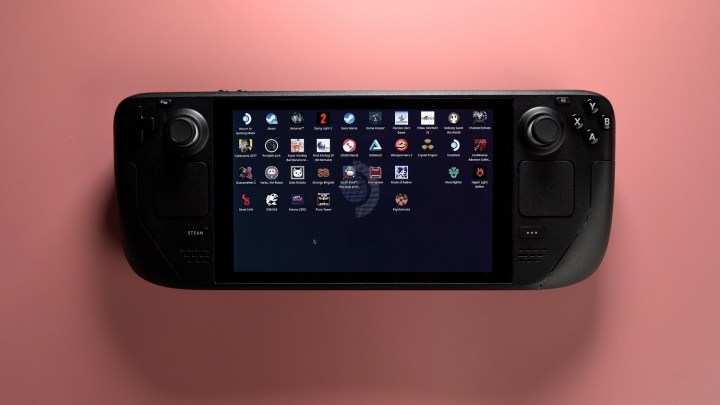
An exciting piece of gossip just dropped, and it might have something to do with the Steam Deck — or it could be something else entirely. We’re talking about a mysterious new device made by Valve that has just received radio certification from the South Korea National Radio Research Agency. Code-named “RC-V1V-1030,” the product is referred to as a “low-power wireless device.” What’s Valve up to now?
The problem is that it could be nearly anything. Aside from a Steam Deck 2, or perhaps even just a refresh to the existing console, Valve has expressed interest in making a new virtual reality (VR) gaming headset to follow up on the Valve Index. Even an updated Steam Controller fits the description. The only thing to be learned from the certification is that the device uses 5GHz Wi-Fi, which could apply to all three of those potential products.
Valve’s Steam Deck is still fairly new, but technology tends to age quickly. Many companies got us used to yearly or biyearly release cycles. Does that mean this mysterious device could indeed be the next iteration of Steam Deck? Some might say that it’s too early for the handheld to receive all-new hardware, but a slightly more powerful version is not out of the question. Valve could release, for instance, a Steam Deck with an improved screen to match the recent competition from Lenovo, Ayaneo, and Asus.
A point in that favor is that Valve started selling refurbished Steam Decks recently, suggesting the company is moving through some backlog of returns.
A Steam Controller 2 would make a lot of sense, given that the first one was released in 2015 and has since been discontinued. However, an extra scoop from Phoronix (also shared by The Verge) tells us that Valve has been making sneaky changes to the code of its Van Gogh APU. A new product family name was added, dubbed “Sephiroth,” followed by a product called “Galileo.” That makes the Steam Controller sound implausible. While it would be wireless and low-power, it wouldn’t have a Van Gogh APU inside.
A VR headset, however, would have its own chip — and Valve has made it clear that it believes the current APU found inside the Steam Deck would do well in a standalone gaming VR headset. The question is whether the APU would be powerful enough to handle VR titles. The chip does well enough within the Steam Deck, but handling VR is a whole different ballgame. Now, if Valve was to release a headset that works as a standalone, but can also be connected to a gaming PC, that could work.
It’s too early to say with any certainty what this product is going to be, but it very well might make it to market, given the certification. My money’s on a Steam Deck refresh that’s still not a whole new console — think Nintendo Switch and Nintendo Switch OLED. We’ll keep you posted if there are any new developments.



